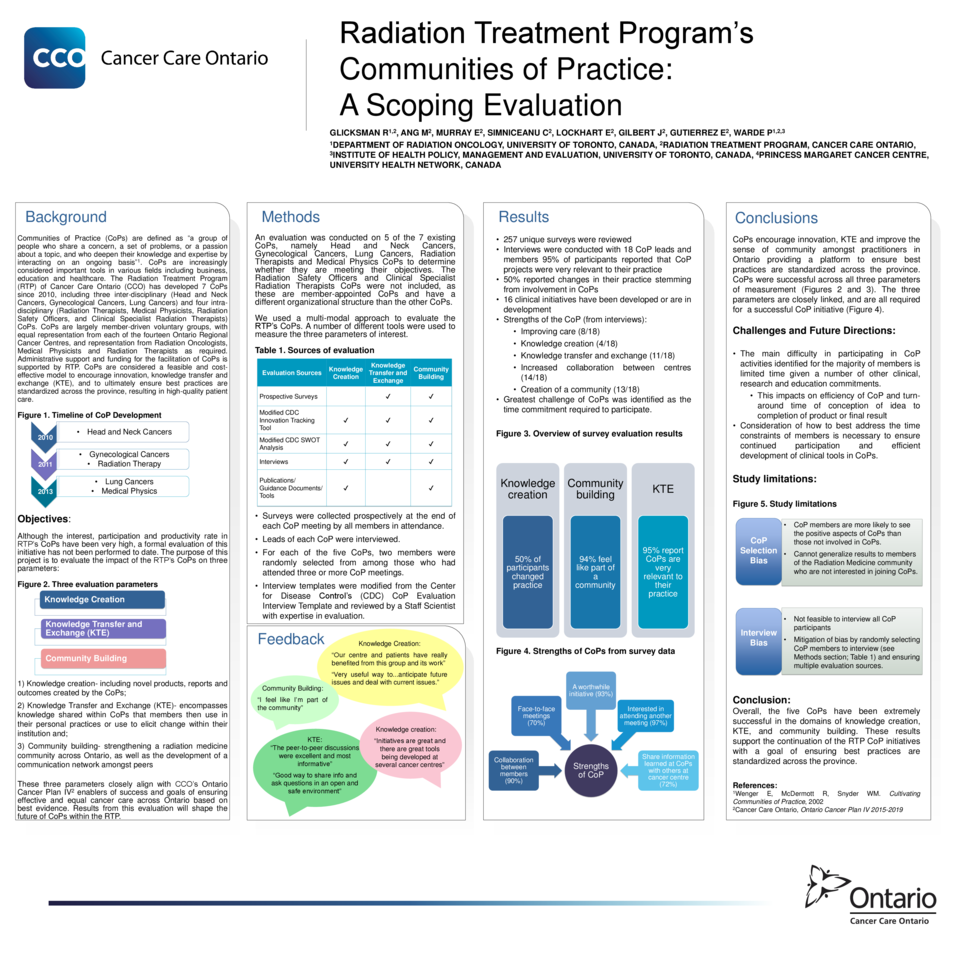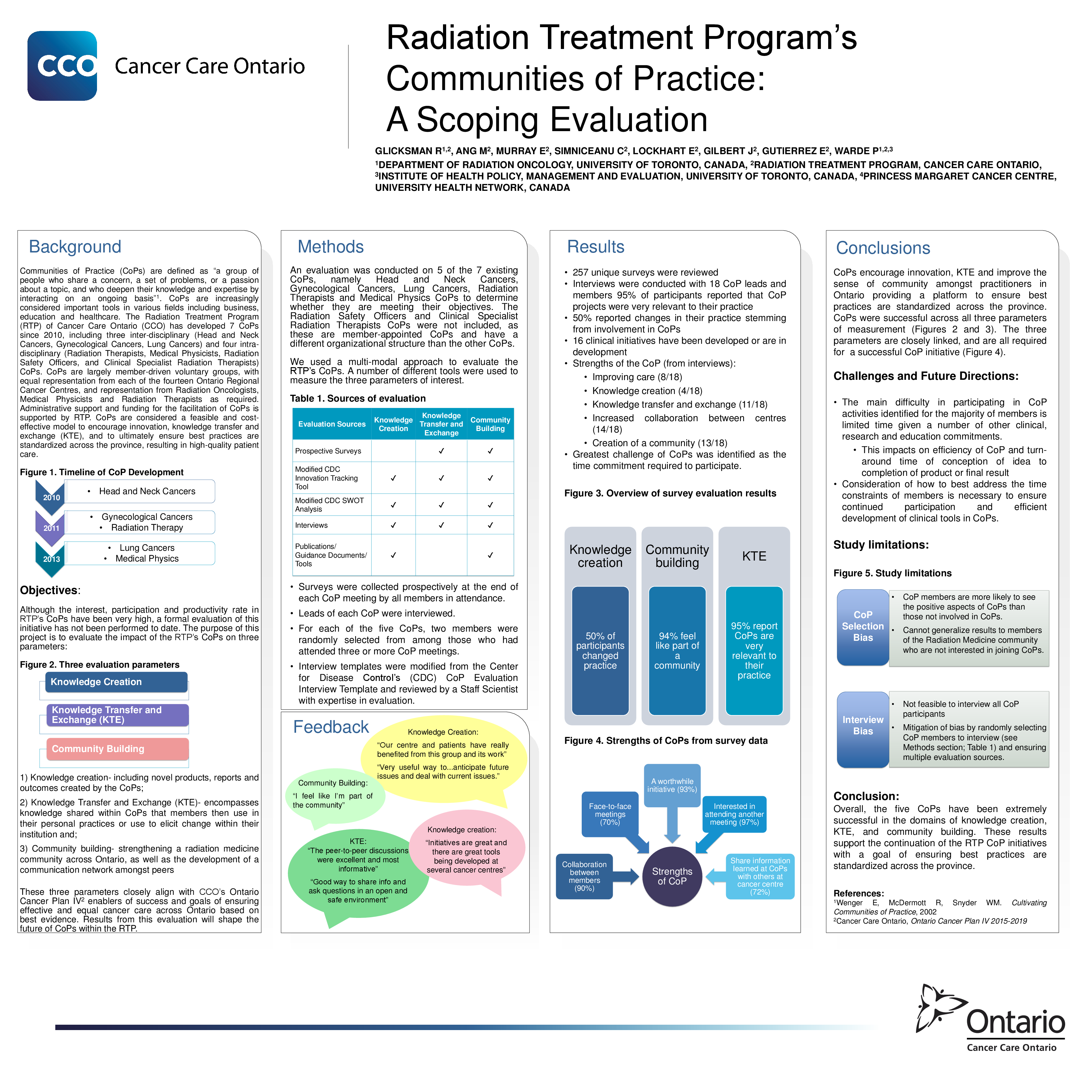Abstract
Purpose
Communities of practice (CoPs) are defined as groups of people sharing common concerns, problems, or passions about a topic, and who deepen their knowledge and expertise by interacting on an ongoing basis. Cancer Care Ontario’s (CCO) Radiation Treatment Program (RTP) has developed multiple CoPs involving staff across 14 regional centres on the basis that knowledge is a critical asset that needs to be managed strategically. This study is to assess the effectiveness of these CoPs on three parameters: knowledge creation, knowledge transfer and exchange (KTE), and community building using the Center for Disease Control and Prevention (CDC) framework for CoP evaluation.
Materials/Methods
Five CoPs were evaluated: three multi-disciplinary (head and neck, lung, and gynecological cancers) with representation from Radiation Oncology, Medical Physics and Radiation Therapy, and two intra-disciplinary (Radiation Therapy and Medical Physics). Data was collected using prospectively administered member surveys, publications, and interviews with all five CoP site leaders and two randomly-selected members of each CoP.
Results
In total 257 unique surveys were completed. Interviews were conducted with 18 CoP leads and members. Most (95%) participants reported that CoP projects were very relevant to their practice and half (50%) reported changes in their practice stemming from involvement in CoPs. Members reported multiple reasons for participating in CoPs: to improve patient care, standardize treatment, share best practices across Ontario, and develop a broader professional network. Members reported benefits of the CoP as improved knowledge transfer and exchange (11/18), increased collaboration between centres (14/18), and creation of a community (13/18). Most (90%) participants reported growth of their professional network as a result of CoPs. Overall 93% of participants and 100% of interviewees reported CoPs are a worthwhile initiative. The largest challenge of CoPs was identified as the time commitment required to participate.
Conclusion
CoPs encourage innovation, KTE and improve the sense of community amongst practitioners in Ontario providing a platform to ensure best practices are standardized across the province. Consideration of how to best address the time constraints of members is necessary to ensure continued participation and efficient development of clinical tools in CoPs.






